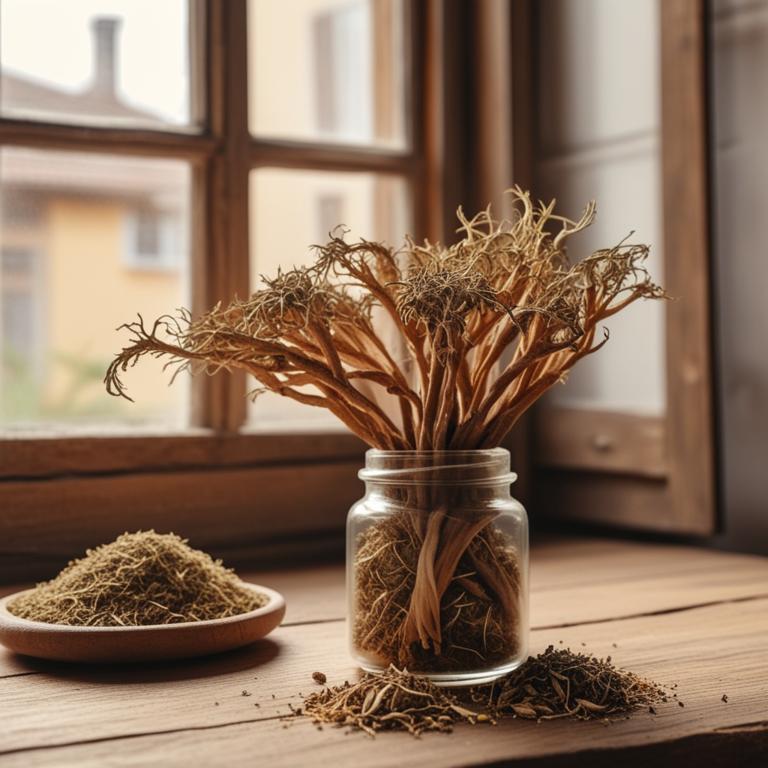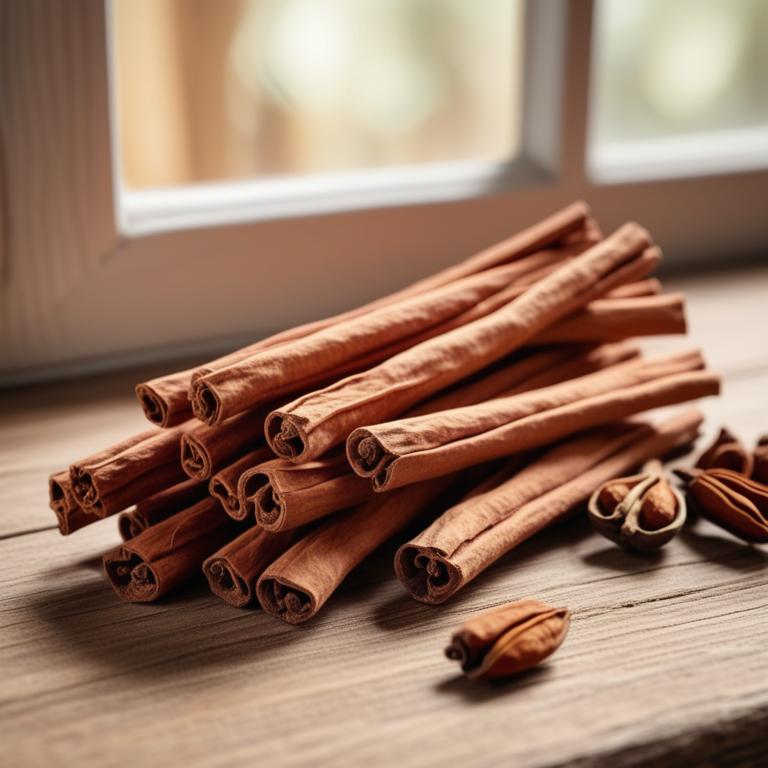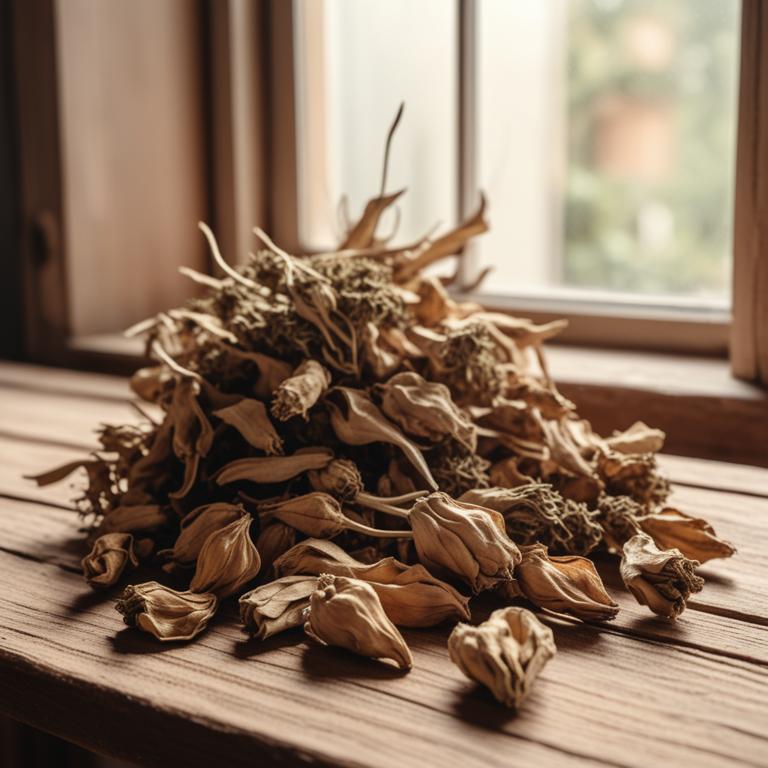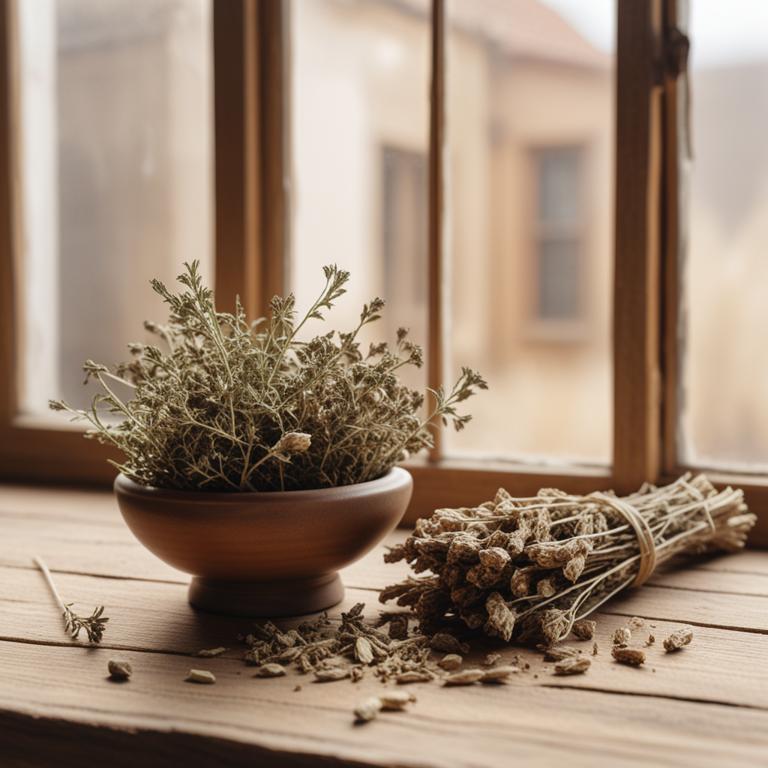Updated: Dec 1, 2024
Ulcerative Colitis: Investigating the Role of Medicinal Herbs and Preparations

Ulcerative colitis is a chronic condition that causes inflammation and sores in the lining of the large intestine.
It can cause severe diarrhea, abdominal pain, and rectal bleeding, making everyday life a challenge. People with ulcerative colitis often struggle with fatigue, weight loss, and depression. The exact cause of ulcerative colitis is not known, but it is believed to be related to a combination of genetic, environmental, and lifestyle factors, such as a weakened immune system, stress, and an imbalance of gut bacteria. Herbal remedies have been used for centuries to help manage symptoms of ulcerative colitis. Turmeric, with its active compound curcumin, has anti-inflammatory properties that may help reduce inflammation and soothe the digestive system.
Ginger, another popular herb, has natural anti-inflammatory properties and can help alleviate nausea and stomach pain. Aloe vera, with its soothing and anti-inflammatory properties, may help calm the digestive system and reduce inflammation. These herbs can be consumed as teas, capsules, or added to foods. In addition to these herbs, other natural remedies such as slippery elm and marshmallow root may also help soothe and protect the digestive tract. Slippery elm, with its mucilaginous properties, can help create a protective barrier in the digestive tract, while marshmallow root can help reduce inflammation and soothe the digestive system.
These herbs can be consumed as teas or added to foods.
Table of Contents
- What factors cause ulcerative colitis to develop?
- What are the benefits of using herbs to alleviate symptoms of ulcerative colitis?
- What are the primary natural remedies for ulcerative colitis?
- What are the top herbal supplements for ulcerative colitis?
- Which herbs can worsen ulcerative colitis symptoms and should be avoided?
- FAQ
What factors cause ulcerative colitis to develop?
The main causes of ulcerative colitis are not fully understood, but research has identified several factors that contribute to the development of this condition.
Genetics play a role, as people with a family history of ulcerative colitis or other inflammatory bowel diseases are more likely to develop the condition. This suggests that there may be a genetic predisposition to the disease.
Autoimmunity is also a key factor, as the immune system mistakenly attacks the healthy tissues in the colon, leading to inflammation and ulceration. As people age, their risk of developing ulcerative colitis increases, especially after the age of 60. Certain infections, such as giardiasis and cytomegalovirus, have been linked to the development of ulcerative colitis in some people.
Finally, family history is an important risk factor, as having a first-degree relative with ulcerative colitis increases a person's risk of developing the condition.
What are the benefits of using herbs to alleviate symptoms of ulcerative colitis?
Using certain herbs can help people with ulcerative colitis in many ways.
Some of these herbs have anti-inflammatory properties, which can reduce swelling and pain in the digestive tract. They may also help to heal the lining of the colon and reduce the risk of bleeding.
Some herbs can also help to relax the muscles in the digestive tract, which can reduce cramping and discomfort. In addition, certain herbs may help to boost the immune system and reduce inflammation in the body. This can help to reduce the severity of symptoms and improve quality of life.
Some people also find that using these herbs helps to reduce the need for medication and hospital visits.
What are the primary natural remedies for ulcerative colitis?
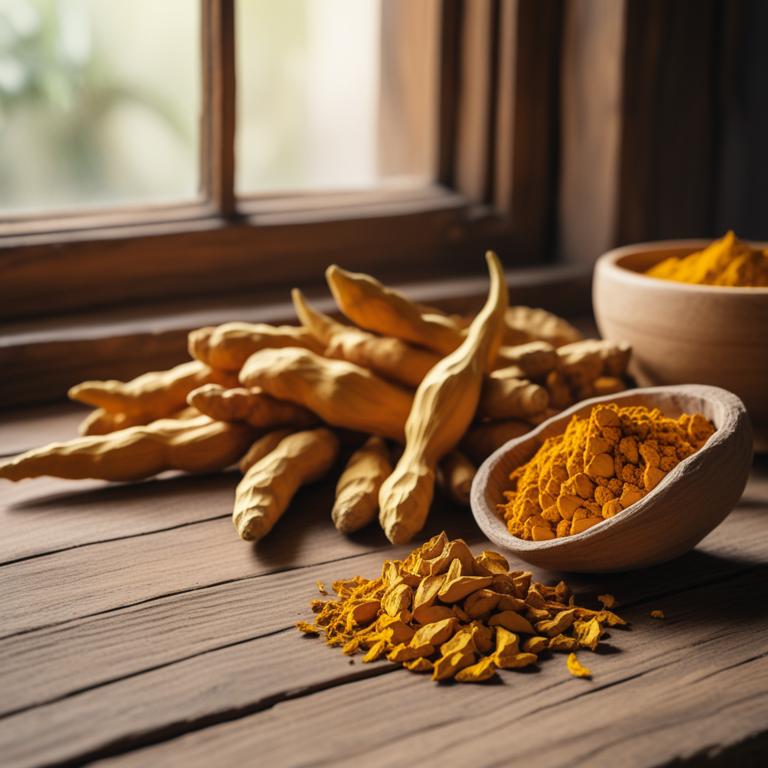
If you have ulcerative colitis, you might want to try using some herbs to help manage your symptoms.
One of the most helpful herbs is curcuma longa, also known as turmeric. It has a compound called curcumin that can reduce inflammation and pain in the digestive system. This can help to calm down the inflammation in your colon and make your symptoms less severe. Another herb that can help is ginger, or zingiber officinale. It has anti-inflammatory properties that can help to reduce pain and inflammation in the digestive system. Ginger can also help to stimulate digestion and reduce nausea, which can be helpful if you're experiencing symptoms like diarrhea or abdominal cramps.
Aloe vera, or aloe barbadensis, is another herb that can help to soothe the digestive system. It has anti-inflammatory properties that can help to reduce inflammation and pain in the colon, and it can also help to calm down any irritation or inflammation in the rectum. Silymarin is a compound found in milk thistle, or silybum marianum. It can help to protect the liver and reduce inflammation in the digestive system. This can be helpful if you're experiencing symptoms like fatigue or joint pain, which can be related to liver damage. Licorice root, or glycyrrhiza glabra, is another herb that can help to soothe the digestive system. It has anti-inflammatory properties that can help to reduce inflammation and pain in the colon, and it can also help to protect the lining of the digestive system and reduce the risk of bleeding.
Remember to talk to your doctor before trying any new herbs, especially if you're already taking medication or have any underlying health conditions.
What are the top herbal supplements for ulcerative colitis?
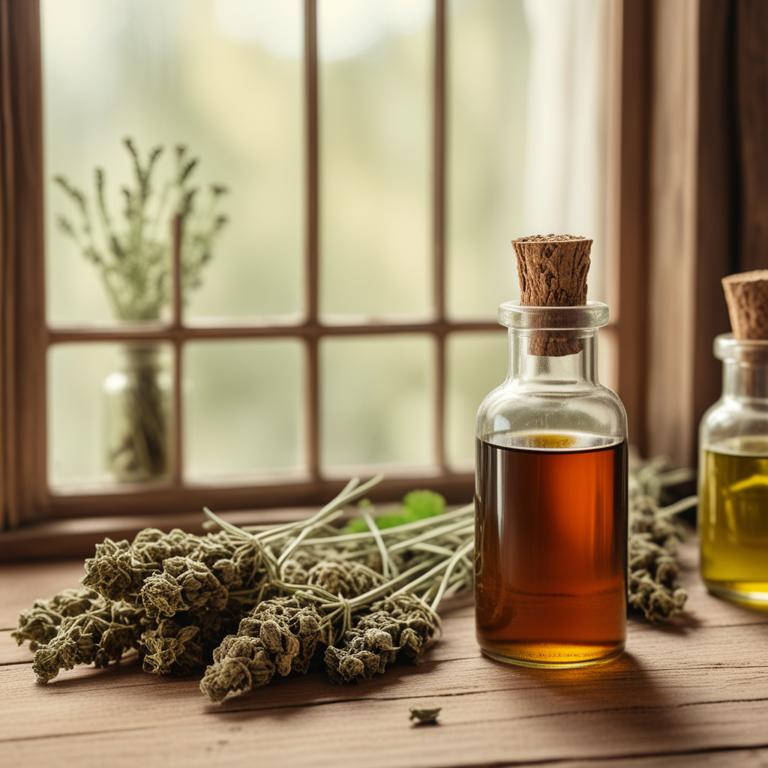
Herbal preparations can be a great help for people with ulcerative colitis.
A tincture is a strong liquid extract that can be taken orally, made from herbs like aloe vera and slippery elm, which help soothe and calm the digestive system. Capsules are easy to swallow and contain dried herbs like marshmallow root and licorice root, which have anti-inflammatory properties that can reduce inflammation in the colon.
A decoction is a strong liquid made by boiling herbs like peppermint and ginger, which can help relax the muscles in the digestive system and reduce cramps. An infusion is a gentle tea made from herbs like chamomile and calendula, which can help calm the body and mind, reducing stress and anxiety that can exacerbate ulcerative colitis. A suppository is a gel or cream that can be inserted directly into the rectum to deliver herbs like aloe vera and tea tree oil, which can help soothe and heal the rectal lining.
These herbal preparations can be used in different ways to help manage the symptoms of ulcerative colitis, and can be used in combination with other treatments under the guidance of a healthcare professional.
Additional Resources:
Which herbs can worsen ulcerative colitis symptoms and should be avoided?
If you have ulcerative colitis, it's best to avoid certain herbs that can trigger complications or worsen your symptoms.
For instance, Ginkgo biloba can increase the risk of bleeding due to its blood-thinning properties, which can be problematic for people with bleeding disorders or who are taking blood-thinning medications. Cinchona officinalis, also known as the source of quinine, may stimulate the digestive system and cause stomach upset, which can exacerbate colitis symptoms. Valeriana officinalis, commonly used for its sedative effects, can slow down bowel movements, leading to constipation, which is already a common issue for people with ulcerative colitis.
Hypericum perforatum, or St. John's Wort, can interact with medications used to treat colitis, such as aminosalicylates and corticosteroids, reducing their effectiveness. Additionally, it may increase the risk of bleeding and interfere with blood clotting. Ephedra sinica, also known as Ma Huang, can irritate the digestive system and worsen colitis symptoms, such as diarrhea and abdominal pain. It's essential to note that these herbs can have varying effects on individuals, so it's crucial to consult with your healthcare provider before using them, especially if you're already taking medications or have a history of complications.
Your doctor can help you make informed decisions about herbal supplements and ensure your safety.
FAQ
Are there any specific herbs that can prevent ulcerative colitis?
Turmeric has been studied for its potential to reduce inflammation in the digestive tract, which could be beneficial for people with ulcerative colitis.
Ginger has also been shown to have anti-inflammatory properties, which may help ease symptoms.
Some research suggests that boswellia, a type of tree resin, may also have anti-inflammatory effects that could help manage ulcerative colitis.
Is it safe to use herbal remedies for ulcerative colitis during pregnancy?
Using herbal remedies for ulcerative colitis during pregnancy is not recommended.
Some herbs can cause problems for the mother and the baby, like miscarriage or birth defects.
If you're pregnant and have ulcerative colitis, talk to your doctor about safe treatments that can help you feel better while protecting your baby's health.
Are there any herbs that can reduce the frequency of ulcerative colitis?
Some herbs, like turmeric and ginger, have been studied for their potential in reducing inflammation and symptoms of ulcerative colitis.
Turmeric contains a compound called curcumin, which has anti-inflammatory properties, while ginger has been shown to have similar benefits.
They may help alleviate some of the condition's uncomfortable symptoms.
Can i combine different herbal remedies for ulcerative colitis?
You can combine different herbal remedies for ulcerative colitis, but be cautious.
Some herbs may interact or have side effects when used together. For example, combining turmeric and ginger may help with inflammation and digestion, but adding peppermint might slow down digestion.
Start with small amounts and observe how your body reacts to each combination.
Related Articles
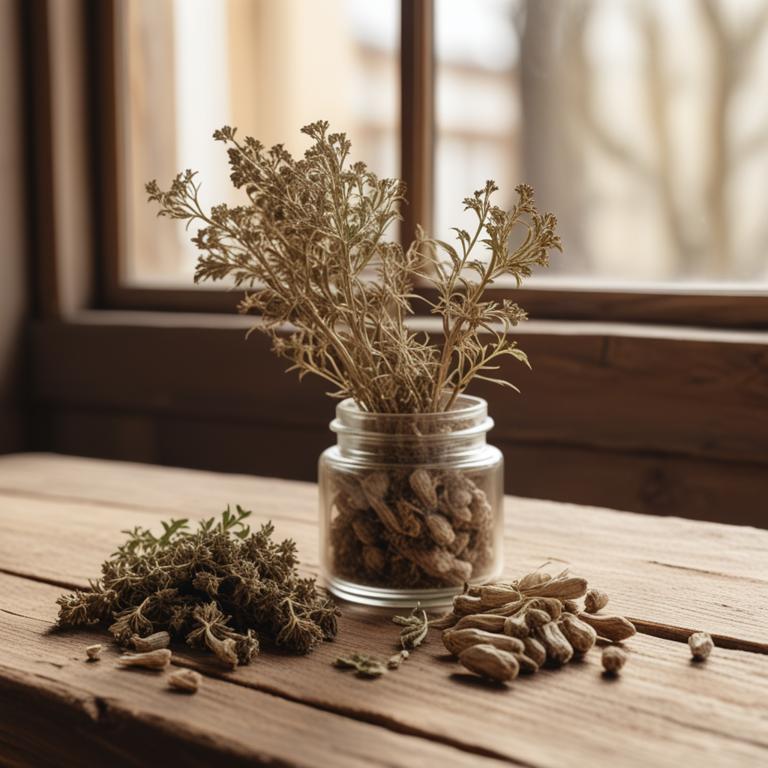
Queasy Stomach Causes and Herbal Remedies: A Comprehensive Guide
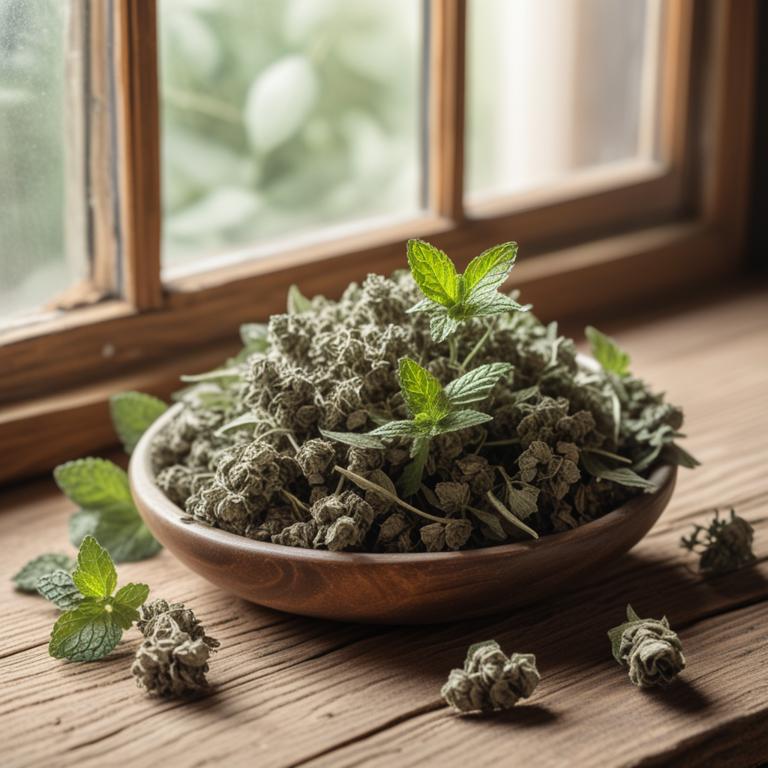
Heartburn and Digestive Health: Medicinal Herbs and Preparations
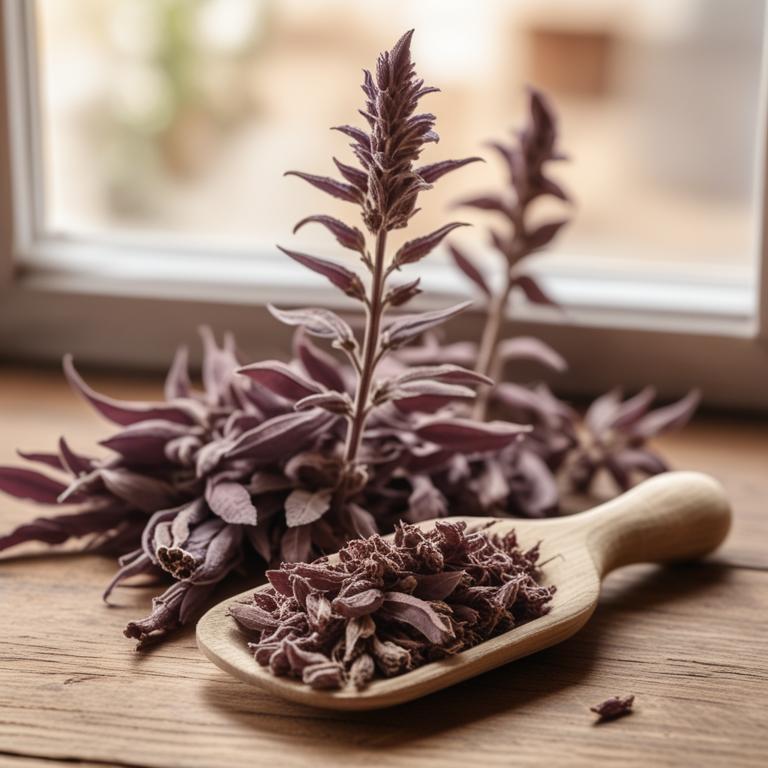
Overeating: The Causes and Medicinal Herbs for a Healthier You
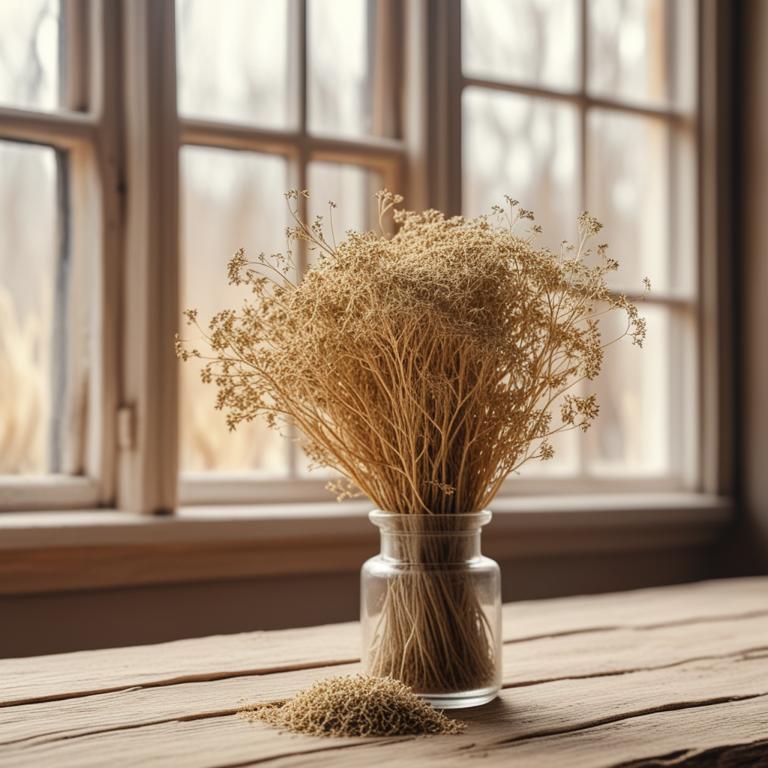
Understanding Gastroenteritis: Causes, Medicinal Herbs, and Herbal Preparations
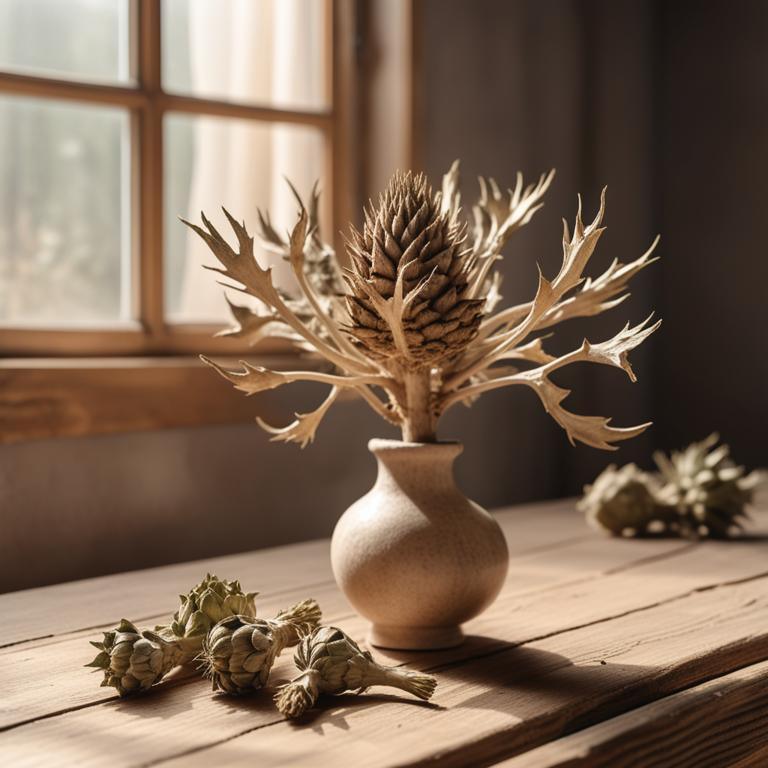
Jaundice Causes and Natural Herbal Treatments Explained
